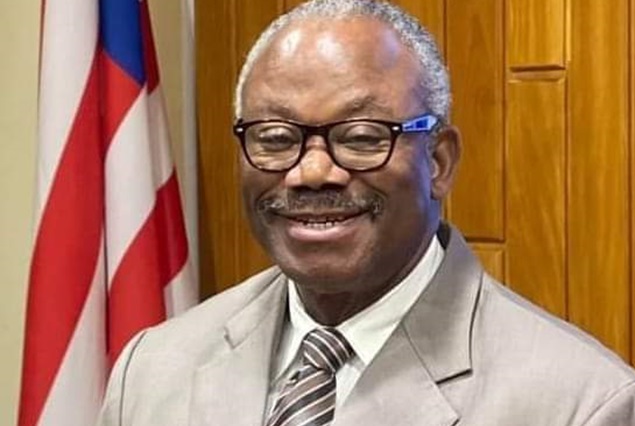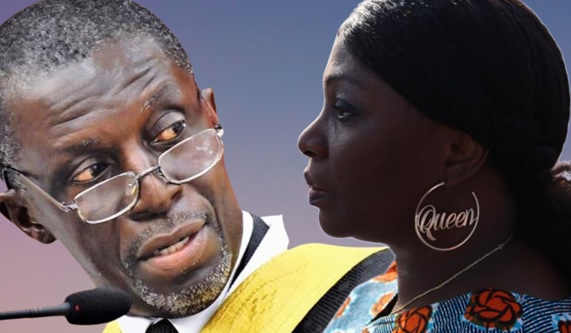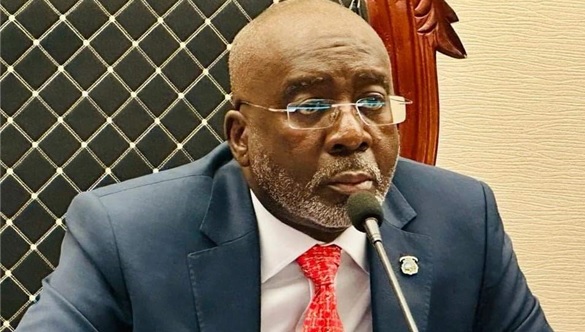MONROVIA – Inside President Joseph Nyuma Boakai’s cabinet, significant criticism has emerged against one of his key ministers, Hon. Sylvester Grigsby, the Minister of State for Presidential Affairs. Some members of the ruling Unity Party, including staunch supporters of President Boakai, have reportedly voiced concerns over Grigsby’s influential role in making appointments within the administration.
Hon. Grigsby, a seasoned diplomat and a high school mate of President Boakai, supported the opposition Alternative National Congress (ANC) and its candidate, Alexander Cummings, during the 2023 presidential election. This background has fueled dissatisfaction among Unity Party (UP) members who see Grigsby’s closeness to Boakai as an impediment, creating serious issues within the Executive branch.
Following Boakai’s win, Grigsby was one of the few individuals brought on board by President Joseph Nyuma Boakai. This decision has faced criticism within the Unity Party, with members questioning why President Boakai overlooked party members with similar credentials as Hon. Grigsby. They argue that there were individuals who actively campaigned for Boakai during the intense election period, making it a point of disappointment that he did not prioritize their inclusion in his administration.
On April 26, 2024, Amara Konneh, Senator of Gbarpolu County, publicly criticized the Ministry of State for purchasing SUV vehicles on instructions from Grigsby, bypassing the Public Procurement and Concessions Commission (PPCC) and Public Financial Management (PFM) Laws. Senator Konneh highlighted this as an example of bad governance, using state-owned enterprises (SOEs) as slush funds, and called for Grigsby’s resignation.
Further controversy surrounds Grigsby’s involvement in the negotiation of 285 yellow machines, a deal that sparked public criticism for its lack of transparency. Additionally, civil society activist Martin Kollie accused Grigsby of nepotism. Kollie claimed that Grigsby appointed his baby mother, Madam Antoinette Wolo, as Chief of Protocol, highlighting the appointment as a breach of ethical governance. “The Minister of State, Sylvester Grigsby, just appointed his baby mother, Antoinette Wolo, as Chief of Protocol. Grigsby and Wolo have one biological daughter. Is this the change? Grigsby has hijacked the PEOPLE’s revolution,” Kollie stated.
The growing dissatisfaction has led to comparisons between Grigsby and Nathaniel F. McGill, the former Minister of State during the Coalition for Democratic Change administration. McGill faced U.S. sanctions and widespread criticism for his influential role in decision-making, appointments, and allegations of corruption. McGill, now a Senator of Margibi County, gained notoriety for his involvement in pivotal government negotiations with investors, as well as for his role in dismissals and appointments. Critics and political commentators fear that Hon. Grigsby may follow a similar pattern due to his alleged influential connection with the President.
This has raised the question about whether Grigsby is exercising a similar level of control over appointments in the Boakai administration. Insiders within the ruling Unity Party are increasingly critical of President Boakai for allegedly allowing Grigsby to dominate the appointment process.
Critics argue that Grigsby’s close relationship with President Boakai has compromised the integrity of governance processes. They allege that decisions regarding appointments and procurement are being made without proper oversight, undermining transparency and accountability in the administration. The lack of adherence to procurement laws in the purchase of SUV vehicles and the negotiation of major contracts has intensified calls for reform within the Boakai government.
Amidst the controversy, civil society groups and opposition figures have called for greater accountability from President Boakai regarding Minister Grigsby’s actions. They emphasize the need for transparent investigations into allegations of nepotism and misuse of state resources. The pressure is mounting on Boakai to demonstrate his commitment to ethical governance and to address concerns raised by legislators and activists alike.
The unfolding controversy surrounding Minister Grigsby has had a significant impact on public perception of the Boakai administration. Many Liberians view the allegations of nepotism and improper influence over appointments as a betrayal of trust and a setback for democratic governance. The scrutiny surrounding Grigsby’s actions has raised doubts about the administration’s ability to deliver on promises of transparency and inclusive leadership.
Within the ruling Unity Party, dissent is growing over President Boakai’s handling of Minister Grigsby’s alleged overreach. Some party members fear that the controversy could tarnish the party’s image and erode public confidence ahead of future elections.
Looking ahead, the controversy surrounding Minister Grigsby poses significant challenges for the Boakai administration. The pressure to address governance concerns and restore public trust will likely intensify. Calls for strengthening oversight mechanisms and reinforcing anti-nepotism policies, are expected to grow louder as the Unity Party government navigates its democratic path forward.
As the debate continues, the fate of Minister Grigsby and the responses from President Boakai will shape perceptions of governance effectiveness and ethical leadership.







